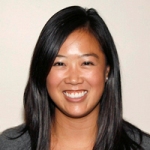Medicine from the heart . . . Bronwyn Sing
On Thursdays, the Daily Voice showcases selected Thursday Morning Memos, reflective essays about clinical experiences written by faculty, alumni, residents and students of the Department of Family Medicine & Community Health and, occasionally, contributors from other departments. Thursday Morning Memos is UMass Medical School’s homegrown version of narrative medicine, in which the authors process their experiences through writing. To learn more, visit: http://www.umassmed.edu/news/articles/2011/personal_stories.aspx.
|
After eight months as a resident at Hahnemann Family Health Center, Bronwyn Sing, MD, chose to do something a little different with her reflection, which speaks very nicely to life as an intern. She describes an important lesson that she has already learned that is allowing her to be a better doctor; her patients appreciate the change and she seems to appreciate the change in herself, making her job that much more satisfying.—Hugh Silk, MD |
 |
Slowing Down to Listen
I have been looking forward to Community Health month in January for quite some time. The most obvious reason is having a two-week vacation, but also having time to be in the health center and having a chance to slow down is a good way for me to reflect on what happened in the last months. I am now eight months into my intern year. The CCU, the Emergency Department, inpatient floors and pediatric floors are behind me. I am glad to have a chance to reflect on the experiences I have had so far.
What I have enjoyed these past eight months is that I have more opportunity to make decisions. I like the challenge to create a solution or plan for what is next. Intern year has brought on responsibility but also with it comes the stress of being efficient, always being a step ahead and being a multi-tasking master, already having the day’s tasks on their way to completion. I find that in striving for efficiency, time spent with patients is what is sacrificed first. On the Family Medicine Inpatient Service, I got used to a constant cadence. Round. Progress notes. Orders. Return page. Updates. Admission. Page. Change order. Page. Order X-ray. Admission. Discharge. Go to lecture. Page attending. Quickly see patient. Answer page. Sign out. My efficiency was improving.
This cadence is pounding in my head as I leave the hospital and enter into Hahnemann’s examination rooms for an afternoon clinic. I have found this transition from hospital into the outpatient setting most striking. Now I have patients who have equally important problems but now it is just me and them in a room. No more constant pages, no more running around. We have time to talk. At first I had a hard time switching gears and adjusting to this time. If I kept my fast-paced cadence of accomplishing things quickly, I could finish my clinic on time—but I was missing many opportunities to pause and ask a question, to clarify an answer, and to also sacrifice a chance to learn more about my patient. I realized that my hospital efficiency was not working for me there.
Now if I take a deep breath, let my adrenaline levels drop, and relax, the cadence slows. I’m listening but I’m learning and sometimes the issues are straightforward or they are circular, complicated, and confusing. Sometimes we will get to a solution and other times I know that a solution may never come. At the end of the visit, I have had a couple patients who have said “Thank you for listening to me.” I was surprised. I realized during those visits that I had slowed down. I had asked more questions. No distractions, no pager, no computer, no scribbling with a pen. I had listened and not hurried them.
I think that patients have had enough experiences with rushed visits and half-listening doctors that they have come to expect it from us. I have experienced it myself with my own doctors. But now I see how easy it is as physicians to get bogged down with efficiency, paperwork, just getting the tasks done. With these eight months under my belt, I recognize the importance of slowing down, to break the mold that so many patients expect from physicians today.
Especially in a family medicine setting, I think that just being heard and having someone listen is a relief for some patients.